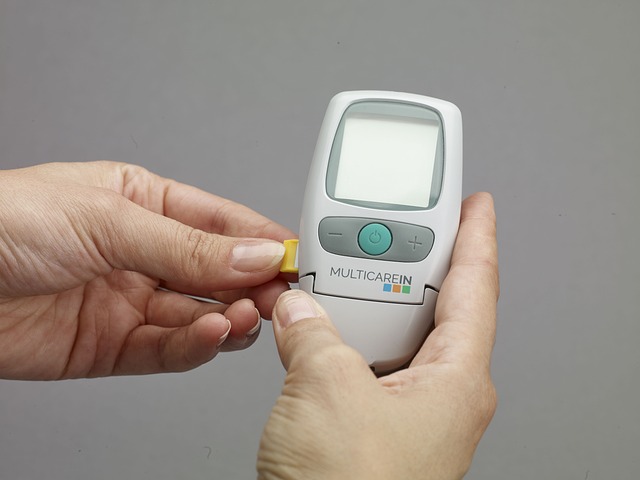A UK male hormone blood test is a vital tool for assessing cholesterol levels and heart health. By measuring total cholesterol, LDL ('bad' cholesterol), HDL ('good' cholesterol), and triglycerides, this test provides critical insights to manage cardiovascular risk. Ideal cholesterol levels vary by age, with optimal totals below 5.0 mmol/L and LDL under 3.0 mmol/L significantly reducing heart disease risk. This simple procedure helps healthcare professionals identify high cholesterol, often asymptomatic, guiding proactive management through lifestyle changes or medical interventions.
Cholesterol levels are a crucial indicator of heart health, and managing them effectively can prevent serious conditions. This article guides you through the essential aspects of cholesterol management, focusing on the role of blood tests. We delve into ‘Understanding Cholesterol Levels: The Basics’ to demystify different types and their impacts. Then, we explore how blood tests serve as powerful tools for monitoring cholesterol, with a particular emphasis on the UK Male Hormone Blood Test—its significance, what it entails, and why it’s crucial for men’s health.
- Understanding Cholesterol Levels: The Basics
- How Blood Tests Help Monitor Cholesterol
- UK Male Hormone Blood Test: What You Need to Know
Understanding Cholesterol Levels: The Basics
Cholesterol is a waxy substance found in all cells in our bodies, playing a crucial role in maintaining overall health. However, high cholesterol levels, particularly low-density lipoprotein (LDL) cholesterol, often referred to as ‘bad’ cholesterol, can increase the risk of heart disease and stroke. Understanding your cholesterol profile is essential for UK male hormone blood test results interpretation. Total cholesterol is measured by combining three types: LDL, high-density lipoprotein (HDL), known as ‘good’ cholesterol, and triglycerides.
Ideal cholesterol levels vary based on age and overall health. Generally, total cholesterol below 5.0 mmol/L is considered optimal, while levels between 5.0 to 7.4 mmol/L are borderline high. LDL cholesterol should be under 3.0 mmol/L for reduced heart disease risk. HDL cholesterol works to remove bad cholesterol from arteries, so higher levels (above 1.0 mmol/L) are beneficial. A UK male hormone blood test provides these critical values, enabling individuals to make informed decisions about their cardiovascular health and lifestyle adjustments to manage cholesterol effectively.
How Blood Tests Help Monitor Cholesterol
Blood tests are a crucial tool in monitoring cholesterol levels, offering a direct and insightful way to assess cardiovascular health. These tests measure the amount of low-density lipoprotein (LDL) cholesterol, often referred to as ‘bad’ cholesterol, and high-density lipoprotein (HDL) cholesterol, known as ‘good’ cholesterol, present in your blood. In the UK, male hormone blood tests often include cholesterol checks as part of their routine screening, providing individuals with valuable data about their heart health.
By analysing a small sample of your blood, healthcare professionals can gain a comprehensive understanding of your cholesterol profile. This information is vital for identifying potential risks and making informed decisions regarding lifestyle changes or medical interventions to manage cholesterol levels effectively. Regular blood tests allow for continuous monitoring, enabling individuals to stay proactive in maintaining optimal heart health, especially as high cholesterol often has no noticeable symptoms.
UK Male Hormone Blood Test: What You Need to Know
In the UK, a male hormone blood test is a common procedure used to assess levels of key hormones, particularly testosterone. This test is often recommended for men experiencing symptoms like decreased muscle mass, fatigue, or reduced sexual function, as it can provide valuable insights into their hormonal balance. By analysing a small sample of your blood, healthcare professionals can measure the concentration of various hormones, including testosterone, and identify potential imbalances.
Understanding your UK male hormone blood test results is essential. Normal ranges for testosterone levels vary based on age. For adult men, typical levels fall between 270-1070 nanograms per decilitre (ng/dL). Results outside this range may indicate underlying health issues or the need for further investigation. Your doctor will interpret the data in conjunction with your symptoms and medical history to determine the next steps, which could include lifestyle changes, therapy, or referrals to specialists.
Cholesterol level testing through blood tests, including the specific UK Male Hormone Blood Test, plays a crucial role in managing cardiovascular health. By understanding your cholesterol levels and regularly monitoring them, you can make informed decisions to enhance your well-being. This article has provided an overview of cholesterol basics and highlighted the importance of blood tests in navigating this essential aspect of men’s healthcare in the UK. Remember that proactive measures, combined with appropriate medical guidance, are key to maintaining optimal cholesterol levels.
